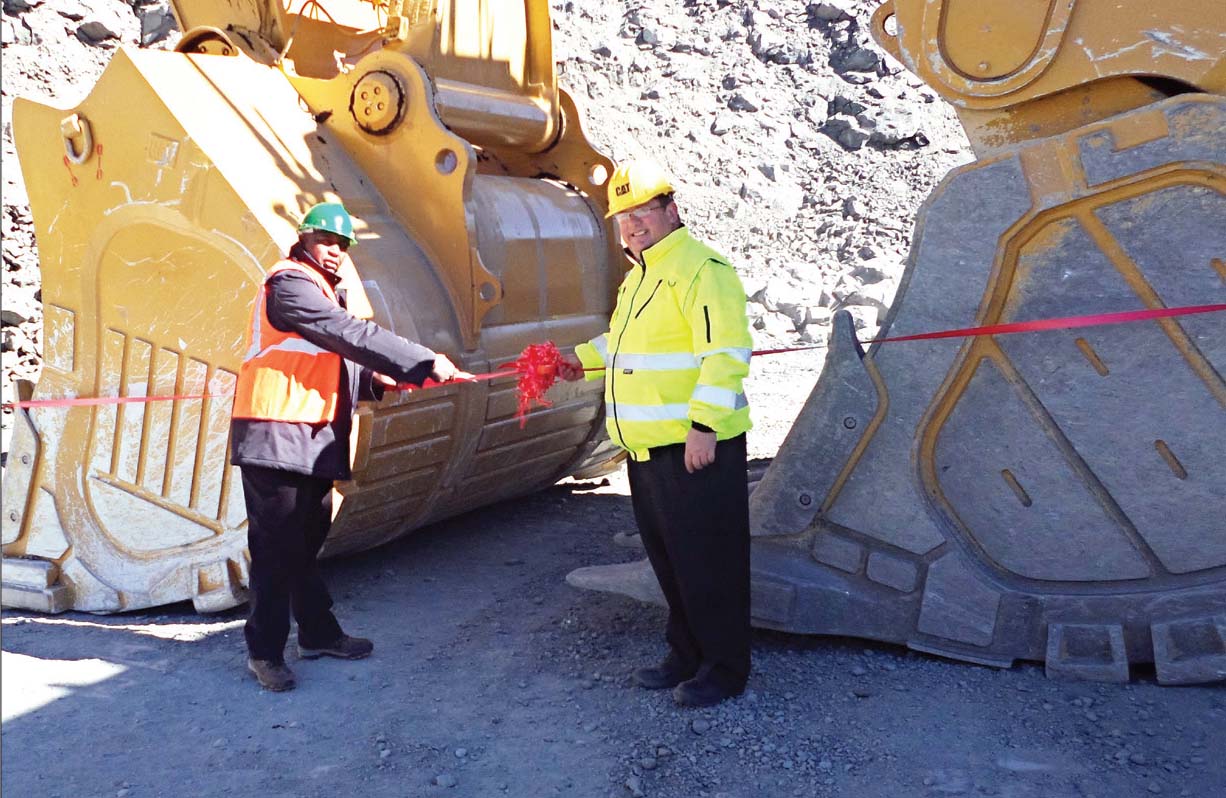Letuka Chafotsa
MOKHOTLONG —The Matekane Mining Investment Company (MMIC) on Thursday last week received two advanced excavators from South African distributor of Caterpillar gear, Barloworld Equipment, to enhance operations at Letšeng Diamond Mine in Mokhotlong.
The machinery will help to ensure the company remains competitive for the coming eight years.
The MMIC is a subsidiary of the Matekane Group of Companies (MGC) and provides drilling, blasting, loading and hauling services at Letšeng Mine, which is 70 percent and 30 percent owned by London-based Gem Diamonds and the Lesotho government, respectively.
Speaking at the handover ceremony of the 6030 Caterpillar Excavators, MGC founder, Sam Matekane, said the equipment would enhance the MMIC operations at the mine.
“We continually strive to use the safest, most-reliable and productive hydraulic shovels possible, offering the widest payload range and time-saving in the mining industry,” Mr Matekane said.
“We believe this new equipment is going to help us be more productive and have sustainable operations here at Letšeng.”
Mr Matekane added that the new excavators were three times more powerful than those the company was using previously. “Both these machines are three times the weight of the excavators that the company was using until now, hence our expectations of improved efficiency.”
The renowned mogul added that the MMIC — which now has one of the largest fleets of earthmoving equipment in Lesotho, ranging from face-shovel excavators to off-highway dump trucks, graders, rock-breakers, drill-rigs, bulldozers, front-end loaders, water-trucks and vibrating rollers — was looking at training more female machine-operators in line with government’s policy of women-empowerment.
“The company is in line with government policy to advance and develop the girl-child, hence we now have four female machine-operators. We are looking forward to having more than 10 female machine-operators before the end of this year.”
Mr Matekane further noted when the MMIC was established in 2004, it had more than 200 foreign employees — a figure he said had now been reduced to 60 as the company seeks to accommodate more Basotho, thereby helping address the high unemployment in the country.
“Initially, the company had more than 200 foreign employees, but we now have less than 60, with the rest being Basotho. We are determined to ensure skills-transfer to Lesotho citizens and curb the country’s high rate of unemployment.”

